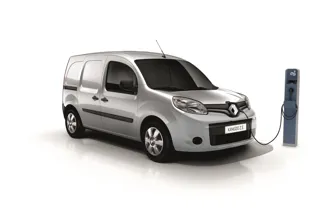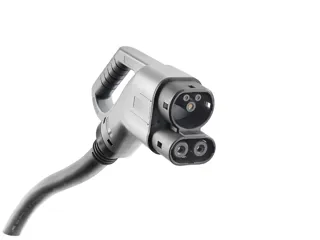The Government is being warned the decision to reduce the plug-in van grant by up to £1,000 risks delaying the switch to electric light commercial vehicles (e-LCVs).
For small vans, 2.5 tonnes gross vehicle weight (GVW) or less, the grant had given consumers 35% off the purchase price up to a maximum of £3,000. That has now been cut to £2,500.
For larger vans, 2-3.5 tonnes GVW, the grant has also been reduced, from a maximum of £6,000 to £5,000.
The cut to the plug-in van grant coincided with ministers also deciding to cut the plug-in car grant and the eligibility criteria.
It had given consumers 35% off the purchase price of an electric vehicle (EV) up to a maximum of £2,500, but has been cut by £1,000 to £1,500.
Meanwhile, cars with a recommended retail price (RRP) of £35,000 or less had been eligible, but that has now been reduced by £3,000 to £32,000 or less.
Furthermore, hybrid electric cars, which had CO2 emission of less than 50g/km and could travel at least 112km (70 miles) without any emissions, are no longer eligible.
There are no changes, however, to grant rates for vehicles over 3.5 tonnes.
Gerry Keaney, chief executive of the British Vehicle Rental and Leasing Association (BVRLA), says that, while the industry has seen high levels of uptake within the car market, the situation is not the same for electric vans.
“The disparity across the industry means that sweeping solutions are not suitable,” he said.
“Incentives have had a positive impact to date but there is more to be done. It is disappointing to see support declining when cost remains a crucial stumbling block.”
Keaney says that there remains “many barriers” to the mass transition to electric vans and the cut to the plug-in grant increases those challenges and will “delay” the uptake of electric vans.
“This is particularly the case for SMEs, where the lack of price parity between ICE vehicles and electric alternatives makes it hard to create a realistic business case to make the switch,” he explained.
“For the move towards electric vans to gain momentum, more support and incentives are essential, now is not the time to remove or reduce them.
“We are calling on the Government to provide more support around commercial vehicles, including an extension of the Plug-in Van Grant beyond the current 2022/2023 end date.”
Vauxhall recently welcomed the Government’s announcement to implement a zero-emission vehicle mandate. Paul Willcox, managing director, Vauxhall, said: “It would provide clarity to the UK motor industry and we want to encourage EV adoption in the UK.
However, he said the plug-in grant cuts send a “confusing message” and will harm EV adoption at a time when we the UK is working towards the 2030 ban on new ICE vehicle sales.
“Whilst we understand the Government’s desire to phase out the plug-in vehicle grant at some point, we really need to see a more strategic, longer-term approach,” he said.
“A lack of clarity and certainty for customers can only harm EV adoption and leave the UK lagging behind other countries in the race to decarbonise personal transport.”
He added: “In our view, further work is needed on other fiscal incentives, such as considering a reduction in VAT for EV, and also aiming that support at those that financially need it to make the move to EV.”
The Government has also dealt a blow to those large fleets which are electrifying vehicles by putting a limit on the number of times a they can apply.
Each business, organisation or individual may receive up to 1,000 grants each financial year (April 1 to March 31). Limits apply to end customers and not to lease companies.
Orders placed on the portal before 7AM on December 15 will not be counted towards this year’s limits.
Existing per customer and total limits on plug-in truck grant orders will continue to apply.
The move, says the Office for Zero Emission Vehicles (OZEV), will ensure that the plug-in van grant scheme is “sustainable” and to ensure fair distribution of the grant across stakeholders.
























Login to comment
Comments
No comments have been made yet.